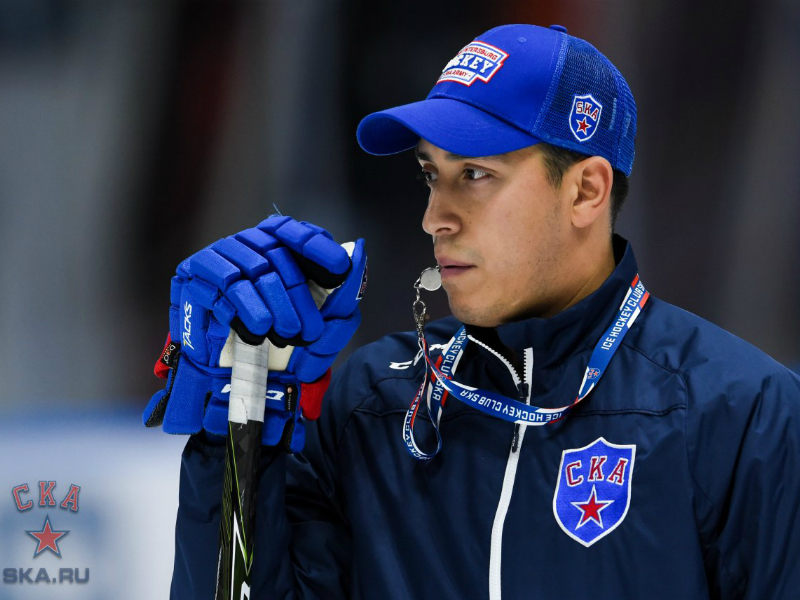If you set the controls of your “wayback machine” to 1972, just after the Soviet Union’s “big red machine” humbled Canada’s best hockey players in the Montreal Forum before losing the eight-game Summit Series, you’d find plenty of hockey mavens noting the Russian team’s superior skill set.
They could skate, handle the puck, pass and score seemingly effortlessly, and it took all the NHLers had to pull out a last-minute series win in dramatic fashion.
Fast forward to 2019 and things haven’t gone so well for the Russian hockey program. Sure, they still produce highly talented and prolific scorers, and they’re still ranked very high by the International Ice Hockey Federation, but they don’t scare any of the major hockey powers on the world stage like they used to.
It turns out that the Russians have recognized the deficiencies in their hockey development program, particularly when it comes to defence, and they’ve turned to a young Canadian expert to help steer them back to world hockey supremacy.
Daniel Bochner spends most of the year in Russia, living in his base in St. Petersburg, but travels all around the country to teach players and coaches the finer points of hockey development.
Bochner – who was born in Toronto but has played professionally in Europe, as well as for Israel’s national hockey team – wears three hockey hats in Russia: he’s the skills development coach for Hockey Club SKA, also known as SKA Saint Petersburg; he’s the director of player development for the Russian Ice Hockey Federation, including the men’s and women’s Olympic and national teams; and he heads up the Red Machine National Development Program, which trains coaches throughout the country to better prepare them to train young players.
As far as he can tell, he’s the only foreigner to have been hired in such prestigious positions. Anatoly Tarasov, who’s considered the father of Russian hockey, must be spinning in his grave.
READ: MIKE WILNER: BLUE JAYS BROADCASTER ENJOYING ‘DREAM JOB’
Bochner began his coaching career only a few years ago, leading the Vaughan Kings, a select-level novice team, to win the championship, move up to AAA in the Greater Toronto Hockey League and sport a remarkable 30-0-3 record only one year later.
Bochner is living a hockey dream, firmly ensconced in St. Petersburg in the first year of a four-year contract that he signed with the Russian Ice Hockey Federation and SKA. He’s been given a nice apartment, a car with a driver and has been treated very well, he told The CJN over the phone from Russia.
Meanwhile, back home, Universal Hockey, the company he started almost 10 years ago, continues to offer skills development in camps and clinics for young hockey players.
It’s a busy life for Bochner, who resides in Russia from July, when training camps open for Kontinental Hockey League teams, until the middle of May, when he comes home for a couple of months.
His hockey journey has also taken him to Beijing and Seoul, where he holds clinics and camps. At the same time, he serves as a consultant to a few NHL teams, giving them an additional set of eyes to evaluate the skill level of various prospects.
But it’s back in Russia where his bread is currently being buttered and where success in hockey is a serious business.
“My responsibilities will include the overall development of players, improvement of their skating quality and increasing the player’s individual skills and technical level,” Bochner stated on Instagram after signing his contract.
Working with SKA does not limit him to the professional team, Bochner explained. It includes supervising the development of players in the club’s entire system, which includes the junior team in the Junior Hockey League and younger players in the Supreme Hockey League.
Bochner works with coaches at various levels, demonstrating techniques and drills and developing strategies to get all the kids to play to their full potential.
Bochner believes that it’s best to develop young players’ athletic skills – like hand-eye co-ordination and weight transfer – rather than focusing on sport-specific skills. Multi-sport athletes go on to become good hockey players, he said.
That’s more or less what happened with his team back in Vaughan, Ont.
“I took this model, applied it to the kids and the results were unbelievable,” he said. “It shows that you can take a group of kids and, with proper coaching, you can have amazing results.”
In today’s hockey world, players are fast and skilled, but what sets the best players apart is not necessarily their foot speed, but the speed at which they process the game.
Time and space is limited when playing a skilled opponent, so players excel when they’re able to recognize situations, know what to do and execute it as quickly as possible, he said.
In some ways, his approach to training athletes hearkens back to the way things were done in the old Soviet era, when Tarasov ran things. In the elite program, youngsters were scouted early and streamed into a program that developed all their athletic skills.
With the collapse of the Soviet Union, the old system was partly lost, Bochner said. His arrival in Russia has raised some hackles with the older cohort of Russian coaches, who seem dead set in their ways, but he said that younger coaches are open to learning new techniques.
“I feel they appreciate it. I spend time with them, give them attention. I share with them video and they see I worked overnight for their benefit. I have a good relationship with almost all the players,” he said.
Whether the Russians can again become the big red machine that put fear into the hearts of their opponents remains to be seen.
